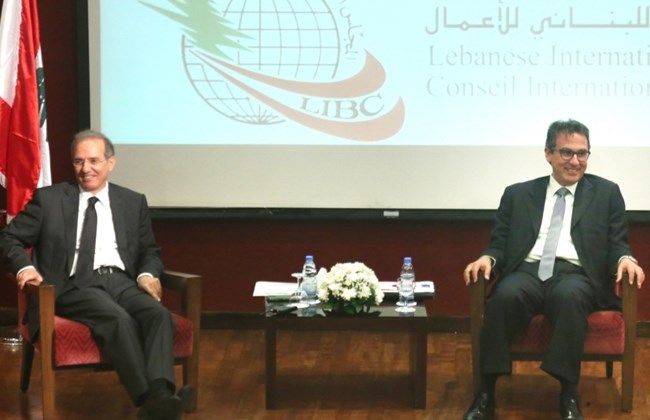Banker explains cash transfer delays
A vice governor of Lebanon’s Central Bank acknowledged Tuesday that some Lebanese expats are complaining about delays in transferring funds to the country. Saad Andary made the remarks to participants in the Immigrant’s Reunion 2016 conference.
It was the first time a senior Central Bank official has admitted that some Lebanese expatriates have voiced concerns about the relatively long process of verifying money transfers to Lebanon due to banks looking for money laundering activities to comply with a recent United States law.
“Banks must be very careful by avoiding a chaotic adoption of these laws especially when it comes to transfers by expatriates to Lebanon because our country cannot go on without the huge remittances by immigrants,” Andary also warned.
Lebanese banks have fervently enforced the U.S. act regarding Hezbollah’s finances and fully complied with the U.S. Treasury’s blacklist which includes senior party members and all financial, trade, commercial and media entities that are directly linked to the group.
Banks normally check the volume of business of their regular customers in Lebanon and abroad and verify if these transfers are in line with the size of revenues they generate each year.
There were complains that some of the transfers were now taking as long two or three weeks – although they normally should not take more than three to four days to complete.
Lebanon counts heavily on the remittances and cash transfers from Lebanese expatriates to stimulate the local economy and maintain a positive balance of payments.
However, Andary reiterated that Lebanon is fully committed to all international laws to combat money laundering and terrorism funding.
“We have to be committed to these laws because we have an open economy,” he said.
He added that Lebanese banks have advanced regulatory systems, noting that these lenders have already taken the necessary measures to organize their work.
“Lebanese banks, for instance, employ only highly skilled people who have technical skills and not only a regular educational background,” he said.
Andary said the Central Bank has also asked banks to hire two international auditors to help in auditing of accounts.
He added that Lebanese banks were able to meet Basel III requirements on capital adequacy ratios since 2015.
For his part, Alain Bifani, the director-general of the Finance Ministry, said that Lebanon will fully comply with the implementation of all international resolutions on tax evasion.
“Lebanon will not surrender to any threats resulting from the implementation of the U.S. financial laws,” he said.
The conference, which took place at Monroe Hotel, aimed at gathering Lebanese immigrants to discuss the challenges they may face with the implementation of the new U.S. financial laws with regard to money laundering and tax evasion.
In order to be fully compliant with international resolutions on tax evasion, Bifani said Lebanon still has to make amendments to four laws pertaining to the disclosure of financial information upon request.
“Lebanon must also sign an agreement with other countries to share financial information necessary to tackle tax evasion,” he said.
“But this cannot happen very soon because other countries must approve signing such agreements with Lebanon and this needs some time,” he added.
Bifani said that Lebanon is keen on implementing all international resolutions while protecting its banking secrecy.
“We want to be part of the international system in a bid to avoid being listed on the blacklist, but we want to do so while protecting our banking system,” he said.
For this purpose, “we chose to follow FATCA Model 2 because we are keen on protecting our banking secrecy,” Bifani said, referring to an earlier U.S. law that attempts to track down American tax cheats abroad. Model 2 requires financial institutions to report information directly to the U.S. Treasury’s Internal Revenue Service, said Bifani. Under Model 1, banks would report all FATCA-related information to an arm of the Lebanese state, which would then pass the information along to U.S. authorities.
Source: Dana Halawi| The Daily Star
A version of this article appeared in the print edition of The Daily Star on August 10, 2016, on page 4.


